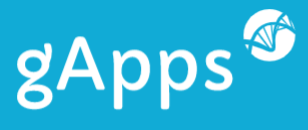Avoiding app store rejection – the importance of using a medical app development specialist
There are many risks associated with using an app development agency that doesn’t specialise in developing medical apps but the most common one is app store rejection. Read on.
Over the past few years the gApps team have heard stories of a number of eHealth entrepreneurs and healthcare companies that have embarked on an app development project with a generalist digital agency only to find out that at the end of the development process they’ve have been unable to get their newly developed medical app published onto the app store.
This is because more often than not the main reason why their app has been rejected is because it does not conform to the regulatory guidelines that have been set for publishing medical apps. If you’re developing an app that is going to be classed as a medical device, then Apple will need to see evidence that you’ve compiled the appropriate paperwork required for launching an app of that nature onto the market. This will often include a genuine copy of the CE Mark certificate that only gets issued to the manufacturer of the device once all the required paperwork has been submitted to the appropriate competent authority within your country, like the MHRA in the UK.
Apple released their expanded section focused on safety requirements for health and medical apps back in 2016, so we get a little surprised when we get requests for help from companies who have had their app rejected due to regulatory issues.
Under the “Physical Harm” section, the guidelines provide several examples of user risk issues that may lead to rejection of an app.
- For instance, medical apps intended for diagnosis or treatment or that run the risk of generating inaccurate health data “may” undergo more vigorous review by Apple; apps that have received regulatory clearance should provide links to appropriate documentation, as well
- If your medical app has received regulatory clearance, please submit a link to that documentation with your app.
- Drug dosage calculators must come from the drug manufacturer, a hospital, university, health insurance company, pharmacy or other approved entity, or receive approval by the FDA or one of its international counterparts. Given the potential harm to patients, we need to be sure that the app will be supported and updated over the long term.
If you’re looking to develop a medical device app then it’s vital that you do the required regulatory research and due-diligence on the app development companies that are being considered for your project. Ask them to show you apps that they have developed which carry the CE Mark (all apps that are classed as medical devices need to have a page within the app itself where the CE Mark is displayed).
You’ll need to consider the classification of your device as the guidelines differ for the various regulatory classes as well as the software safety class, while making sure your organisation can meet all of those guidelines. Also don’t forget that as of May 2021 your app all will need to conform to the Medical Device Regulation MDR.
At the end of the day the guidelines are there to protect patients and healthcare professionals that will be using your app and if you or your chosen app developer doesn’t have the required expertise to not only code these types of apps but to also produce the appropriate compliance paperwork for submission, then you will end up facing the same scenario above, which could prove very costly.
If your app meets the definition of a medical device then you could also face a significant fine for a regulatory violation, from the competent authority responsible for the registration of medical devices. Developing mobile applications that function as medical devices is complex. Choosing the right partner is more than just about assessing their technical capability. Medical device app developers also need to understand the regulatory and data security requirements, so make sure you do the right research before choosing your app development partner.
Useful resources
We have created a number of useful resources which will help you to better understand what additional aspects of app development you’ll need to consider if you’re developing an app that will be classed as a medical device:

